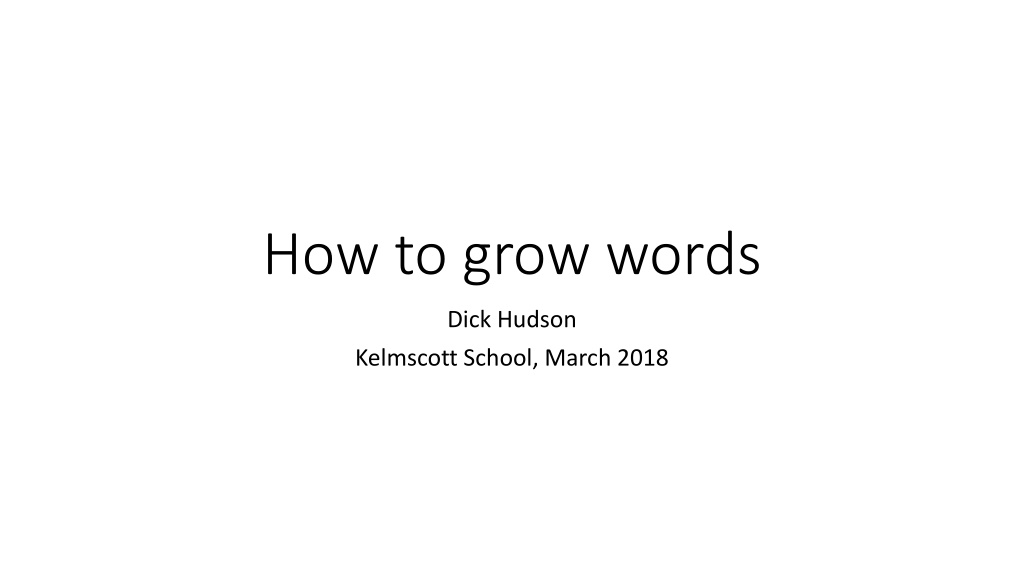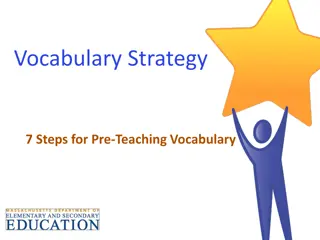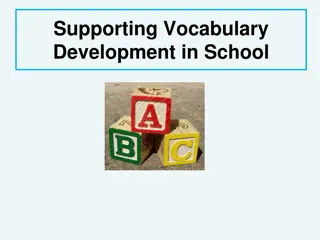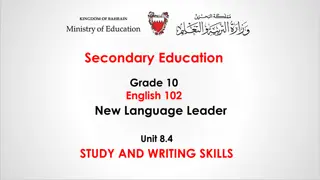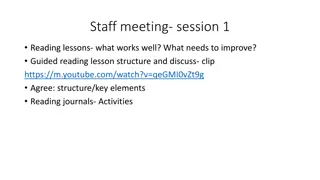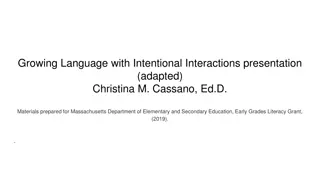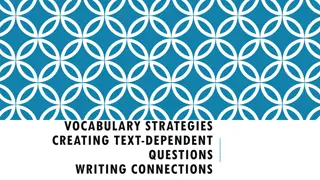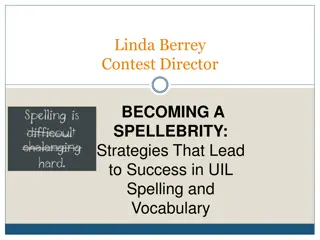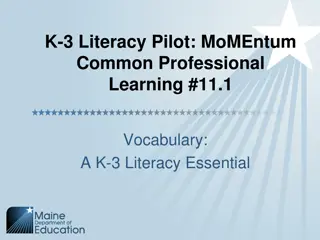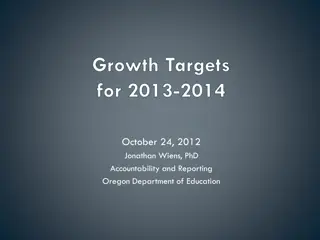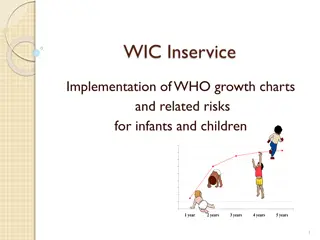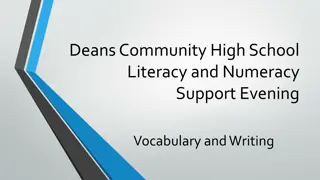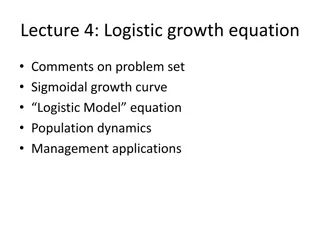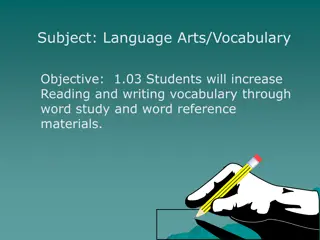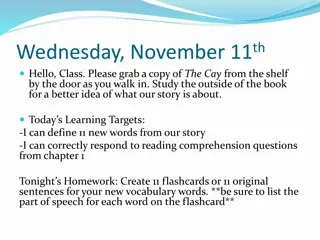Understanding the Importance of Vocabulary Growth in Education
Discover the impact of vocabulary growth on academic success and communication skills. Learn how a rich vocabulary can enhance your writing, reading, and speaking abilities. Explore the connection between vocabulary size and performance in exams like GCSEs. Find out why vocabulary matters and how it influences various aspects of your life.
Download Presentation

Please find below an Image/Link to download the presentation.
The content on the website is provided AS IS for your information and personal use only. It may not be sold, licensed, or shared on other websites without obtaining consent from the author. Download presentation by click this link. If you encounter any issues during the download, it is possible that the publisher has removed the file from their server.
E N D
Presentation Transcript
How to grow words Dick Hudson Kelmscott School, March 2018
Youre growing taller Your body has almost finished growing taller. You
Youre growing cleverer Your brain has stopped growing bigger, but now you re tidying it up. Year 7 You
titfer < tit for tat < hat Cockney Rhyming Slang And more wordy kapelo shapka apka qaba ah m ozi hat titfer [your word here] sombrero chapeau petasum Hut p l rie koofiyad
Back to English: How big is our vocabulary? Test it at http://testyourvocab.com/ How many of these words do we know?
The highest scorers know more than twice as many words as the lowest scorers! And your vocabulary is growing New words learned per day: Primary school: 6 Secondary school: 12 You Still growing
Does vocabulary size matter? Yes. Every word gives you an idea (a concept ) for thinking with and for communicating. So a large vocabulary helps you to: write, read, listen and say complicated things. enjoy reading and writing. do well at school. get a job, learn the job. deal with life. and get good grades at GCSE.
Does size matter at GCSE? Let s look at two answers to the same GCSE question, about snow. We know what the markers thought of them: One scored a level 1 The other a level 4. Why?
Level 1 Ignore the colours put in by markers.
Level 4 and three more pages.
Does size matter at GCSE? Yes: Level 1: 86 words Level 4: 566 words I.e. try to write lots of words even if they re nonsense! But another kind of size is the size of your vocabulary. Markers are looking for evidence of a large vocabulary. The best evidence is if you use a lot of different words. But what kind of word?
A little research project Select a strong and a weak bit of writing ( text ). Count the length (in words ) of the two texts. Take the shorter text as the standard, and count the same number of words from the start of the longer text. Count the number of different big words in each text by word class: noun adjective verb What do you think we ll find?
For example Level 1 Level 4 I am writing to you to tell you that snow is very bad. Snow. The joy and/or sorrow that floods into our bodies when we wake up in the morning to see that cars are camouflaged into the driveway by a wash of a white substance. Snow. Thinking of endless things to do on our bucket list of the day which somehow always manages to include the outdoors, i.e. building a new friendly snowman (before it melts into the ground later), sledging down a steep hill for a local (and free) exhilarating ride, and snowball fights with the ones This is because when people are going to work there car might get stuck and they wont be able to move again or if they do not have a car there train, bus, taxi, or plane might get canceled. So that s why it is bad. Children love playing in the snow because the like throwing it at each other and making snowmen and snow angeles. Thats why kids like it but not adults.
The result Grow your nouns and adjectives! Total number of words = 86 Distinct big words: level 1 level 4 nouns 7 21 adjectives 2 8 verbs 11 11
What kinds of nouns? Use more abstract nouns Level 1: concrete: snow, car, train, bus, taxi, plane, child abstract: -- Level 4: concrete: snow, body, car, driveway, substance, things, snowman, ground, hill, snowball abstract: joy, sorrow, morning, wash, bucket list, day, outdoors, ride, fight
What kinds of adjectives? Level 1: bad, able Level 4: white, endless, new, friendly, steep, local, free, exhilarating Use more precise adjectives. But not mindlessly nouns are just fine without an adjective!
How to grow your words Notice Don t just ignore new words Study Guess or use a dictionary Wonder Be interested! If you re interested, you ll remember. What s a titfer? Use Look for opportunities to use your new words Live dangerously we grow by making mistakes.
How to impress the examiners Use words from the extract to be analysed. Adapt these words by adding or removing parts e.g. assassination > assassinate > assassin Think across subjects for metaphors geography: bedrock, confluence, delta, dormant science: acceleration, acid, amplitude, antibody, artery Think across languages use words from your other languages Never hesitate to create new words or phrases in the exam e.g. wordify, cross-word harmony, depunctuate, upstyle
